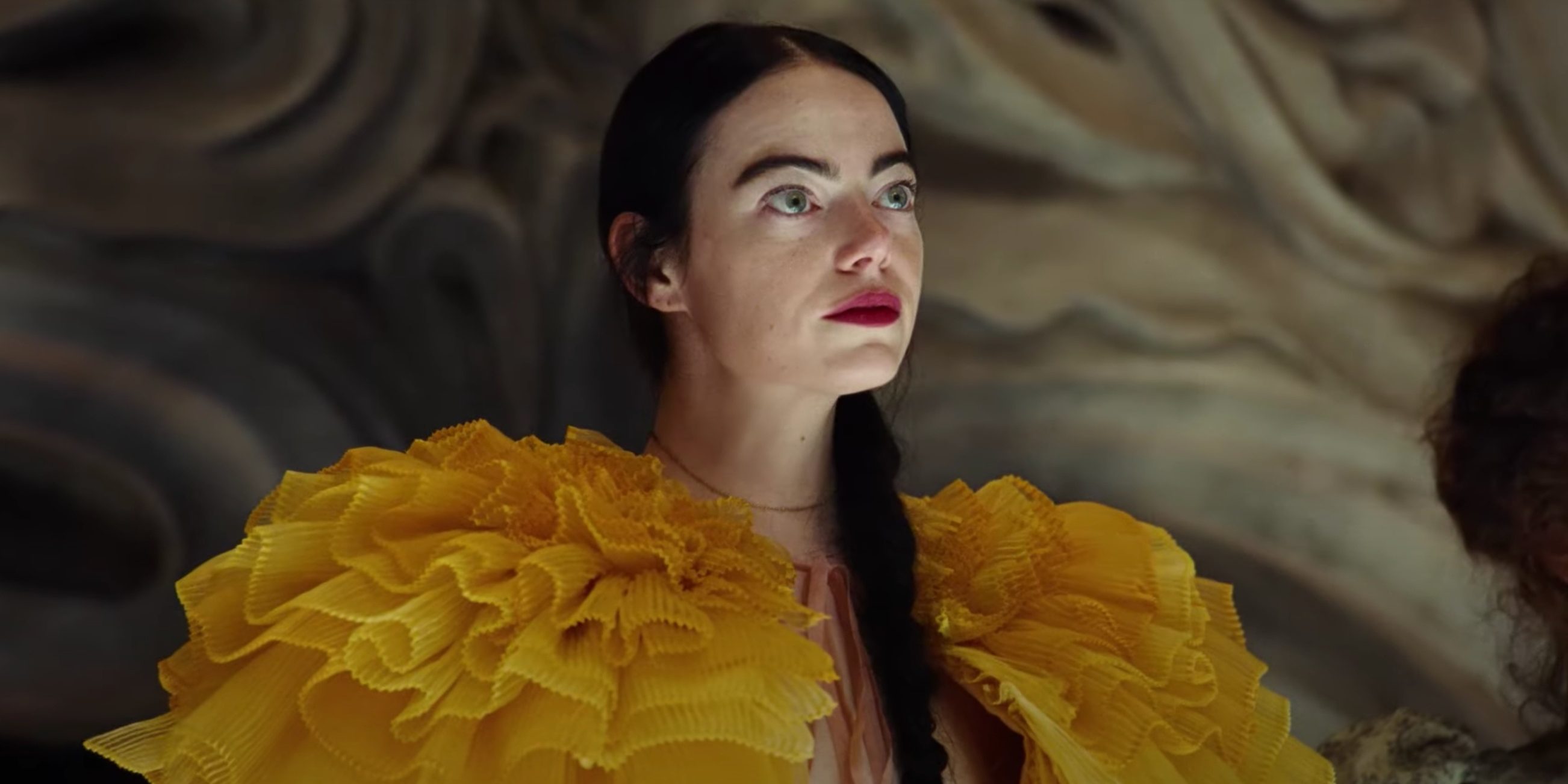In his films, Yorgos Lanthimos tends to explore a facet of humanity by adding absurdity and wit, usually accompanied by visuals that are a sight to behold. All of this, especially the visuals, becomes grander in ‘Poor Things,’ where we follow a woman named Bella Baxter who has a very complicated predicament, as she has the body of a grown-up but the brain of an infant, developing at a much higher pace than for normal humans.
The entire film takes place from Bella’s perspective and focuses on her growth as she jumps from cognitive learning to sexual exploration to intellectual awakening. With a female protagonist who refuses to bow down to anyone, the film touches upon some important themes, but can it truly be called a feminist film? What is the message of ‘Poor Things’?
Poor Things is About Taking Control of One’s Life

When we are children, we are unaware of the rules and laws of society, of what falls in and out of the moral lines, what’s considered socially acceptable, and what behavior would be impolite on all counts. All these things are hammered into us with each mistake that is corrected, with every time we are told to do things a certain way or not to do them at all. Over the years, we learn the ways of the world, and by the time we become adults, our philosophies, our morality, and our sense of right and wrong have already been defined. We might still learn new things and change our thoughts or behavior, but our core, what defines the way we think and what we are ready to accept, is, at some level, already fixed.
This is why perhaps watching Bella Baxter travel the world without abandon, exploring her sexuality, forming her own beliefs, questioning everything, her ease to say no when she doesn’t want something, and moving decisively forward when she does is so captivating. Bella is a fantasy for the viewers, one that they know is too idealistic to be real. There is no way someone like Bella could survive in the real world; she would be eaten up by it. It is only the absurdity of her world, in which she herself remains the most absurd thing, and the plot armor that keeps her from ending in a ditch. Should the viewers be lost in Bella’s fantasy world, characters like Harry are brought in to remind Bella, as well as the viewers, that it is best to remain within the confines of realism rather than indulge in a fantasy that will never come true.

At its heart, however, the story resonates with this deep desire to make one’s own path and to take control of one’s life to as much extent as possible, if not all of it. We can’t all live with the same reckless abandon as Bella, mainly because, despite all the troubles and challenges in her path, she remains in a position of privilege, which is not afforded to most viewers of her story. But if there is something you want to take away, it is her spirit of exploration, of exploring herself and the world and knowing what she doesn’t want, even if she doesn’t know exactly what she wants. Take a hint from Bella and Duncan’s dance in Lisbon, and never let anyone else take control. Dance to the beat of your own drum.
Can Poor Things be Called a Feminist Film?
There are several lenses from which ‘Poor Things’ can be viewed, and not all those lenses present it in a flattering light. With Bella taking the lead and trying to be in control of her own destiny, the film certainly has a foot in feminist waters. As she moves forth, we see all the men around her trying to control her in one way or another, no matter if they are well-intentioned. Bella defies any form of control and is unabashed about her expression.

While she stays with Duncan, it is her positive attitude and her belief that he will come through that keeps her with him, not his manipulative tactics, where he tries to separate her from the crowd that puts new ideas into her head, and he sees his own grasp loosening on her. The film also ends on a note that might feel quite empowering, with Bella defeating the bad guy and now becoming the head of the house where she was once merely a sheltered baby. Putting a goat’s brain in your abuser and keeping him as a pet goat would fall under the revenge plot very well, but all of this doesn’t necessarily mean a good thing at all times.
While there is a lot of change in Bella, and she does grow through her experiences, the film, for the most part, seems more focused on her sexual exploration and sees her being empowered only through that. The question of the male gaze and the male sexual fantasy (what with the insatiable nymphomaniac and the playing out a form of schoolgirl fantasy with a young girl trapped in the body of a grown woman) is bound to raise some brows.
Considering this, it is fair to say that while ‘Poor Things’ tows that line, it seems to remain unconcerned with the idea of totally fitting into the frame of feminism. Would Bella Baxter be considered a feminist? For sure. But would the film itself be considered feminist? The answer isn’t so simple. One could say that the film remains stunted in parts with regard to its feminist themes. It would depend on how much leeway you are ready to allow on certain things. In any case, it would, without a doubt, be a great topic for debate.
Read More: Why is Poor Things in Black and White? Why Does it Change into Color?


You must be logged in to post a comment.